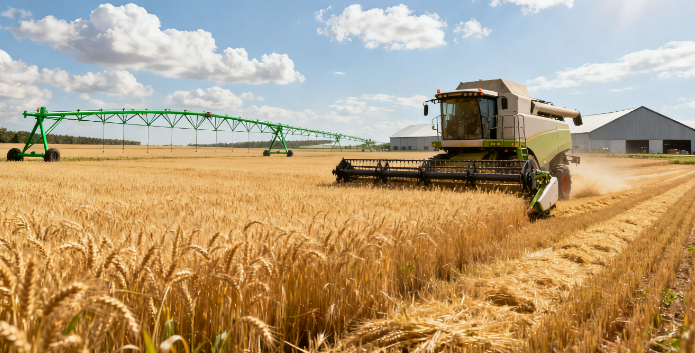
In September of this year, Brazil set a record for the highest agricultural and livestock product exports for the month since records began. The export value of agricultural and livestock products in that month reached $14.95 billion, a 6.1% increase compared to the same period in 2024. This industry's exports accounted for 49.0% of Brazil's total exports in that month. The growth primarily stemmed from a 7.4% increase in export volume, while international average prices slightly decreased by 1.1%.
In the cumulative export value from January to September this year, Brazil's agricultural and livestock product exports grew by 0.7%, reaching a total of $126.6 billion. Meanwhile, imports of products from this industry increased by 7.3% in September, with a year-to-date growth of 5.4%. The agricultural and livestock sector has contributed over $111 billion in trade surplus to Brazil this year, aiding in the balance of Brazil's foreign trade.
Carlos Favaro, Brazil's Minister of Agriculture and Livestock, stated that this performance confirms the resilience of the industry in the economy.
He remarked, "The results in September demonstrate that the competitiveness of Brazil's agricultural and livestock products remains strong even in challenging external environments. This also confirms the correctness of the strategies for market and product openness, expansion, and diversification that have been strengthened since 2023. So far, we have opened up 444 new export market opportunities for Brazilian producers and exporters."
Highlighted projects in September include: Fresh beef exports at $1.77 billion (a 55.6% increase); Fresh pork reaching a historical high at $346.1 million (a 28.6% increase) with exports nearly doubling (a 78.2% increase); and Corn exports at $1.52 billion (a 23.5% increase).
Among the products that may be impacted, coffee exports amounted to $1.3 billion (a 9.3% increase), and fish product exports reached $38.7 million, with a 6.1% increase in export volume.
In addition to traditional items on the export list, the Brazilian government has been actively promoting diversification of the export structure and expanding opportunities to enter high-value-added markets. This strategy includes market opening and expansion, business promotion, and industry chain support to expand the Brazilian agricultural and livestock product market in regions such as Asia, Europe, and North America.
International visits drive exploration of new markets
Secretary of Foreign Trade and International Relations at the Ministry of Agriculture, Luis Hua, emphasized the importance of foreign visits to multiple countries in continuously exploring new foreign markets for Brazil.
He emphasized, "The data for September shows Brazil’s agricultural products maintaining their international presence in a globally challenging environment. The combination of health safety, quality, competitiveness, along with dialogue with the private sector and business promotion actions, consolidates Brazil's position as a reliable partner in global food security. In 2025 alone, the Ministry of Agriculture has undertaken over 60 international missions, in addition to hosting international fairs and events such as the 'Agricultural Product Export Promotion Tour,' in collaboration with the Brazilian Export and Investment Promotion Agency and the Ministry of Foreign Affairs."
While maintaining adequate domestic supply, the export of agricultural and livestock products creates employment and income, attracts foreign exchange, and reduces risks through market and product diversification. This stimulates innovation and sustainable investment, strengthens Brazil's strategic relationships in international trade, and is a result of joint efforts between the government and the private sector, focusing on certification, standards alignment, health requirements, and business promotion activities to expand Brazil's influence in the global food supply chain.
